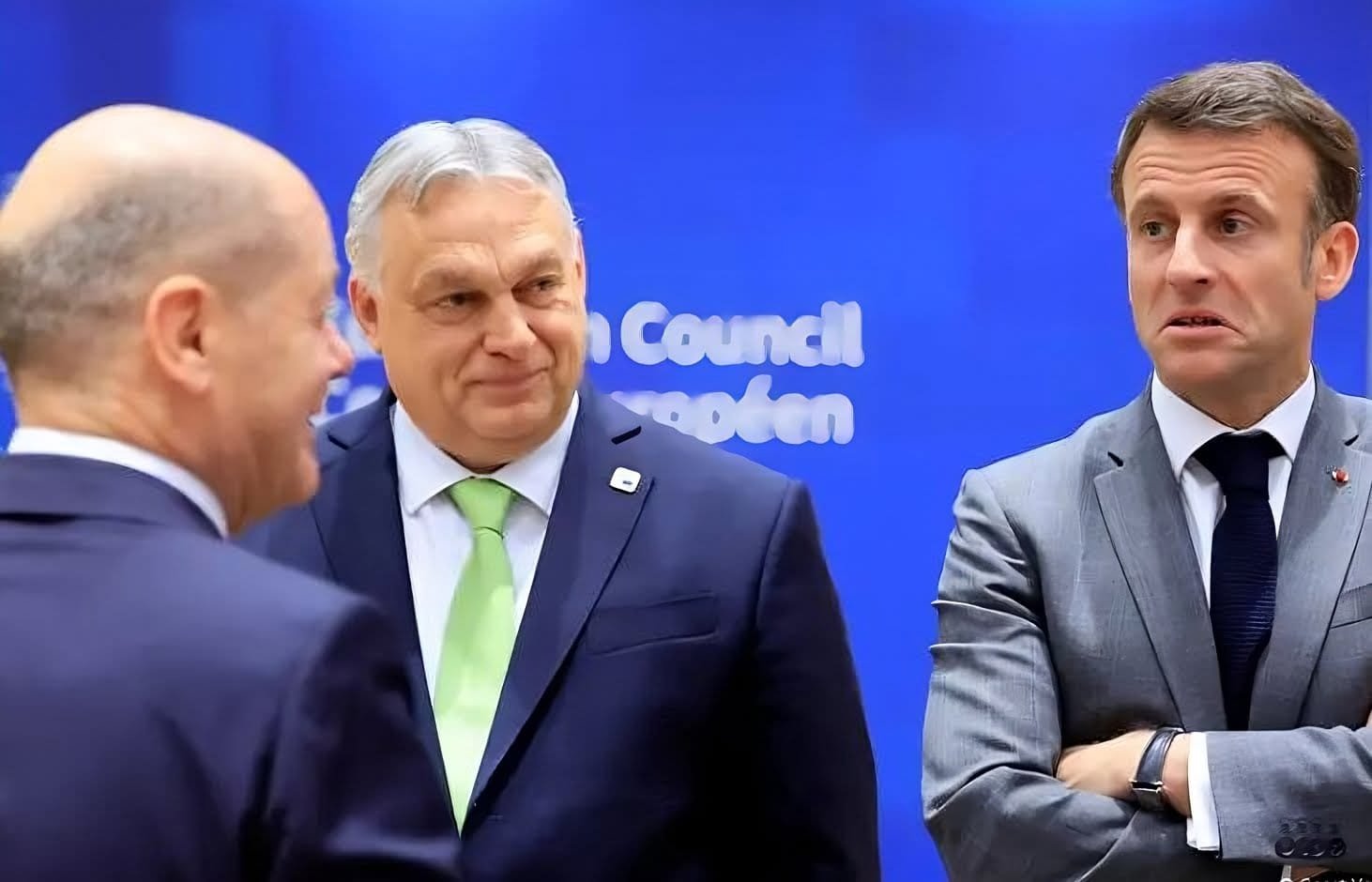Russia’s invasion of Ukraine has put enlargement at the top of the EU’s agenda. But countries lining up to join the European Union are poorer than existing members. Would the new members empty the budget?
“Without farmers, no more bread” was a popular slogan during more than 200 road blockades organized by Polish farmers in February this year. On the outskirts of the Polish town of Kock, a two-hour drive from the Ukrainian border, hundreds of tractors blocked a road to prevent cheap Ukrainian grain from entering the country. For farmers here, there is another major concern: they fear Ukraine, Poland’s eastern neighbor, joining the EU as it could threaten their livelihoods. “Forget about it. This is a crazy idea,” one of the protesting farmers told DW during the blockade.
For more than a decade, the EU seemed like a closed club, with aspiring countries queuing up to join. But the Russian invasion of Ukraine has fundamentally changed the situation. Last December, the EU opened negotiations with Ukraine and Moldova and granted Georgia candidate status. “For understandable reasons, the EU is now seeing enlargement as a security instrument. The budget is part of the discussions, but it may not necessarily be the deciding factor,” Thu Nguyen, deputy director of the Berlin-based independent institute Jacques Delors Center, told DW.
The recent protests in Poland bring this to mind once again, although the economy is undoubtedly part of the EU’s political motives. Indeed, Brussels’ new enthusiasm for enlargement is accompanied by the fear that enlargement will put some of the EU’s members and citizens at an economic disadvantage.
The EU spends most of its budget on regional development and agriculture. The concept: member states that are less wealthy receive more money from the EU than they pay. The eight countries that are currently in line to join are all poorer than the current member states. Turkey would be the ninth candidate country for the EU, but its accession process has been suspended.
The expansion is linked to hopes for economic improvement
For Jasna Pejovic from Montenegro, EU membership would give the country “more legitimacy”. Montenegro is the country that has made the most progress on the road to EU membership. 80% of the Montenegrin population wants to be part of the EU. Speaking to DW at the office of her e-learning startup Flourish in the capital Podgorica, Jasna says being an EU citizen would be like a certificate of appreciation for her business. For DW, she confesses that investors who have not done business with Montenegro say that if we were part of the European Union, the situation would be different. Montenegro with a small population of 630,000 inhabitants would not pose any great strain on the EU budget.
“If the EU were to accept Montenegro tomorrow for this, it would really have to pay, but no one would notice, because it is affordable,” says Nathalie Tocci, adviser to two former EU commissioners on foreign policy. “But for the EU there would be no economic stimulus.” For the countries of the Western Balkans, membership would bring opportunities and economic opportunities for millions of people, at a manageable cost for the EU. And yet, most Western Balkan countries have been waiting for more than a decade. North Macedonia even for two decades.
Ukraine would overshadow several member states
Recently, a new candidate for membership appeared on the eastern horizon – Ukraine. Hard hit by the Russian invasion, the country received candidate status in June 2022. In relation to Ukraine, the most populous – and poorest – of all the candidate countries would be “a different game”, says Nathalie Tocci. “This is because of its size, because of the agricultural sector, because of the average well-being and, above all, because it is a country at war with the need of 500 billion euros for reconstruction still in progress.”
If Ukraine were to join the EU, it would become the largest European agricultural producer and put a much greater burden on the EU’s finances. If all EU farmers together work up to around 157 million hectares (387.35 million acres) of arable land, Ukraine would add another 41 million hectares. For some current members, this would bring unwanted competition to the internal market. Poland, for example, has now climbed to one of the most competitive food producers in the EU since joining in 2004. If Ukraine joins the EU, this position will be threatened, as Ukrainian industrial farms dwarf European ones. . “We would probably go bankrupt, as we would be easily flooded with much cheaper products from Ukraine,” says Lukasz Czech, a Polish grain and pig farmer from Parczew, who also receives EU subsidies.
Would the new members empty the EU budget?
According to an internal calculation by the European Council, admitting all the candidates would cost the EU around 256 billion euros, Ukraine alone is estimated to receive 186 billion euros over seven years, but this does not include the costs of rebuilding country after the ravages of war. Expert Thu Nguyen thinks that “the financial consequences would not be as high as some of the numbers suggest.” But even Thu Nguyen can’t say exactly where the extra money the EU needs will come from. “It is possible that they come from the current member states. It is possible for the EU to raise funds through new sources. For example, there are discussions about a plastic tax or CO2 regulation mechanisms.” Some of the EU member states want to push the accession process forward at an unprecedented speed. Whether they will succeed or not will depend on the future composition of the new European Parliament that will be elected in June./DW







